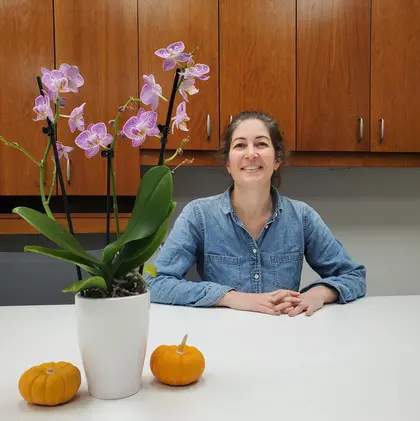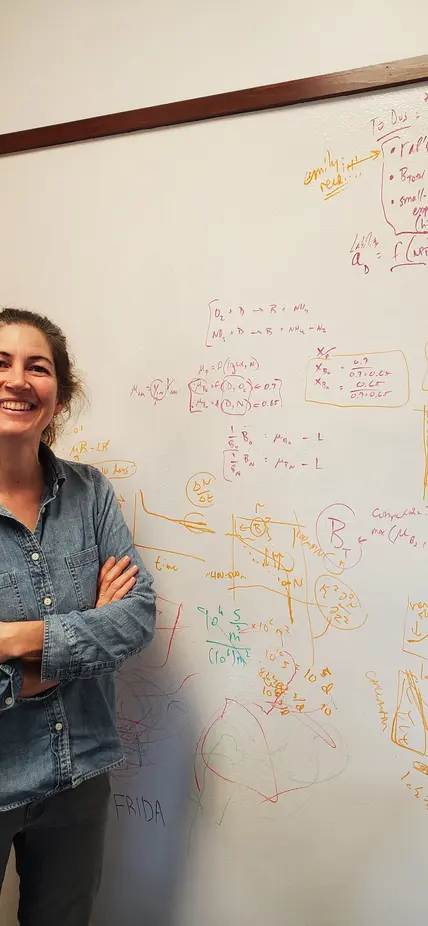
Washington, D.C.— Carnegie Science’s Emily Zakem is one of five scientists selected by the Simons Foundation for the 2024 Early Career Investigators in Aquatic Microbial Ecology and Evolution program. This three-year award is intended to help launch the careers of outstanding researchers in the field.
Zakem uses theory and mathematical models to build connections between microbial ecosystems, the biogeochemistry of the ocean, and the climate system. Her work hypothesizes that microbial activity is sufficiently predictable to provide insight into large-scale biogeochemical features.
For example, the research Zakem will pursue with the Simons award is focused on how marine microbial communities shape the nitrogen cycle and can contribute to and thrive in dangerous low-oxygen dead zones. Although bacterial species that don’t require oxygen demonstrate explosive growth in these environments, fish and other marine organisms are unable to survive. These regions are believed to be expanding due to climate change, a major concern for fisheries.
“Congratulations to Emily on her selection for this highly competitive program,” said Stephanie Hampton Deputy Director of Carnegie Science’s Biosphere Sciences and Engineering Division. “This award recognizes her creative approach and cutting-edge research directions. As someone who studies freshwater ecology myself, I’m eager to see what she reveals.”
Zakem is part of Carnegie’s prestigious Staff Associate program, which was designed to empower outstanding early career scientists, enabling them to pursue the kind of bold, creative research laid out in our founding mission.
The Early Career Investigators in Aquatic Microbial Ecology and Evolution grants will be funded by the Simons Foundation and Simons Foundation International and administered by the Simons Foundation.
